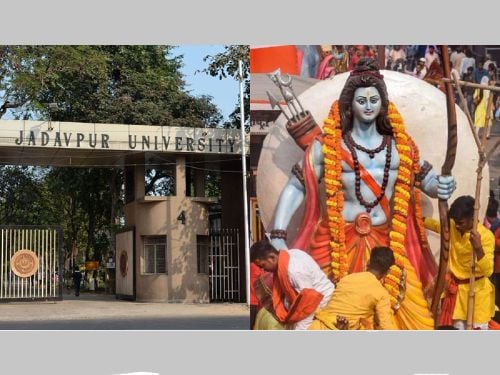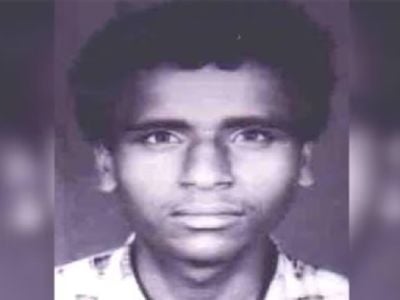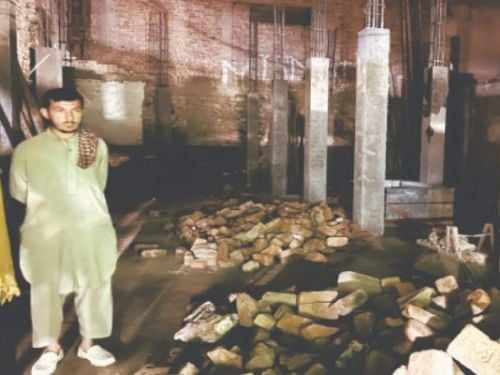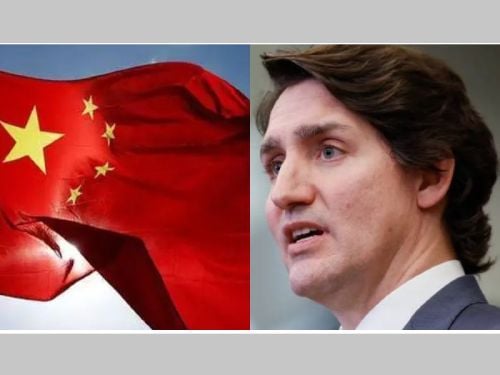The Hindu organization Vishva Hindu Parishad (VHP) has written to the Centre and sought the enactment of a law to free Hindu temples and religious institutions from government control. VHP has also appealed to the centre to pass anti-conversion law. A press release issued by the organisation on November 27 said that Vishwa Hindu Parishad has taken an initiative to free Hindu temples and religious institutions from the Government’s Control, on this endeavour, VHP Central Leadership is meeting seers and saints of Hindu Dharma to seek their guidance to evolve an alternate control structure, where the temples will be administered by the Hindu samaj.
Enact central law to free Hindu temples and religious institutions from Govt control and law against conversion: @AlokKumarLIVE pic.twitter.com/8bZmPe1Bcb
— Vishva Hindu Parishad -VHP (@VHPDigital) November 27, 2021
VHP has said that as part of the guidance seeking program, a team consisting of the central working president Alok Kumar, joint general secretary Sthanumalayan and organising secretary from South India P M Nagarajan with VHP workers from Tamil Nadu would seek guidance and blessings from the Hindu saints and sadhus in the pursuit of their attempt to solve the long-standing issue.
In July 2021, VHP had passed a resolution to Enact Central Law to free Hindu temples and religious institutions from Governments Control. The press release said, “The Board of Trustees of Vishva Hindu Parishad is of definite view that the Hindu temples and religious institutions should be freed from the Govt control. The Temples in Bharat have been the nuclei of social, religious, and cultural activities of the. Hindu society and the secret of the enduring nature of Hindu Nation and immortality of Mrityunjay Bharat Hindu devotees visit temples to internalise the sanctity and serenity of the place and contribute their offerings so that the educational institutions, health services, festivals, religious and social projects/activities run by the temples could be run in an apt manner. Therefore, besides conducting the daily sacraments and related activities, the temples have remained in vanguard supporting the society in times of crisis and emergency.”
It further added, “the irony is that the state governments get their hands on many such rich temples of the country and spend the contributions of devotees illogically and arbitrarily. Even the money of temples is appeasingly used to serve the non-Hindu causes. The Hindu religious institutions have been controlled by Governments since the British times. For this purpose, Madras Hindu Religious Endowments Act. 1926 was enacted. As a consequence of this law. the management and administration of our religious institutions was taken over by the British Government. Our temples are still being acquired under the cover of this black law, whereas in the Chidambaram Natraj Temple case, the Madras High Court has clearly said that the governments should free the Hindu temples from government control.”
VHP has said that now the time has come for a comprehensive discussion regarding the management of Hindu temples and other religious institutions. The organisation said that transparency and accountability should be ensured in the new framework of temple management. “While deciding on the new frameworks, temple traditions, hereditary arrangements, the role of Archaks and sections dependent on the temples’ income and participation of devotees will have to be taken into account,” the press release said.
The VHP further said that the government cannot be the owner of the temples. The governments and the courts of law can have some minimal necessary role, when required. What and how much would be that role, must be considered by all stakeholders, the press release issued by VHP added.
The organisation also added that given the diversity of the Hindu society, there can be no uniform framework in the management of all temples. It said that different approaches must be explored keeping in mind different traditions, customs, and ways of worship. It is now urgent to take necessary steps in this regard at a fast pace.
“Vishva Hindu Parishad appeals to the Central Government to make a central law to handover Hindu Temples and religious institutions to the Hindu society, so that saints and devotees could refurbish and do up their religious and administrative systems and their traditions oriented towards ensuring the spirituo-socio-cultural dynamism of Mrityunjayi Bharat,” the press release demanded.
VHP’s International Working President Alok Kumar said, “Hindu devotees visit temples to internalise the sanctity and serenity of the place and contribute their offerings so that the educational institutions, health services, festivals, religious and social projects/activities offered by the temples can run in an apt manner. However, the irony is how state governments get their hands on many such rich temples of the country and spend the contributions of devotees illogically and arbitrarily.”
The Vishwa Hindu Parishad also called upon The Tamil Nadu government to drop the plans to monetize the Temple ornaments by melting the ornaments into gold bars, which were donated by millions of devotees to the temples over the years. It said that the devotees have donated to the temple for a specific reason and belief, and VHP states that Government do not have any rights to melt the ornaments into gold bars and deposit them in the banks as it is a matter of faith and belief. VHP also asked the Tamil Nadu govt to enact an anti-conversion law.
Source : OpIndia

 Jadavpur Univ revokes permission to celebrate Ram Navami on campus after granting it
Jadavpur Univ revokes permission to celebrate Ram Navami on campus after granting it Chhattisgarh: Naxal top commander along with 28 other Naxals killed in a joint operation
Chhattisgarh: Naxal top commander along with 28 other Naxals killed in a joint operation Andhra Pradesh: Farooq kills mentally challenged Hindu man for insurance money
Andhra Pradesh: Farooq kills mentally challenged Hindu man for insurance money Pakistan: Ancient Hindu temple in Khyber Pakhtunkhwa demolished for commercial complex
Pakistan: Ancient Hindu temple in Khyber Pakhtunkhwa demolished for commercial complex 2 ISIS terrorists arrested in Germany for sexual abuse of minor Yazidi children
2 ISIS terrorists arrested in Germany for sexual abuse of minor Yazidi children China, not India, interfered in 2019 and 2021 Canada elections, says Canadian panel
China, not India, interfered in 2019 and 2021 Canada elections, says Canadian panel